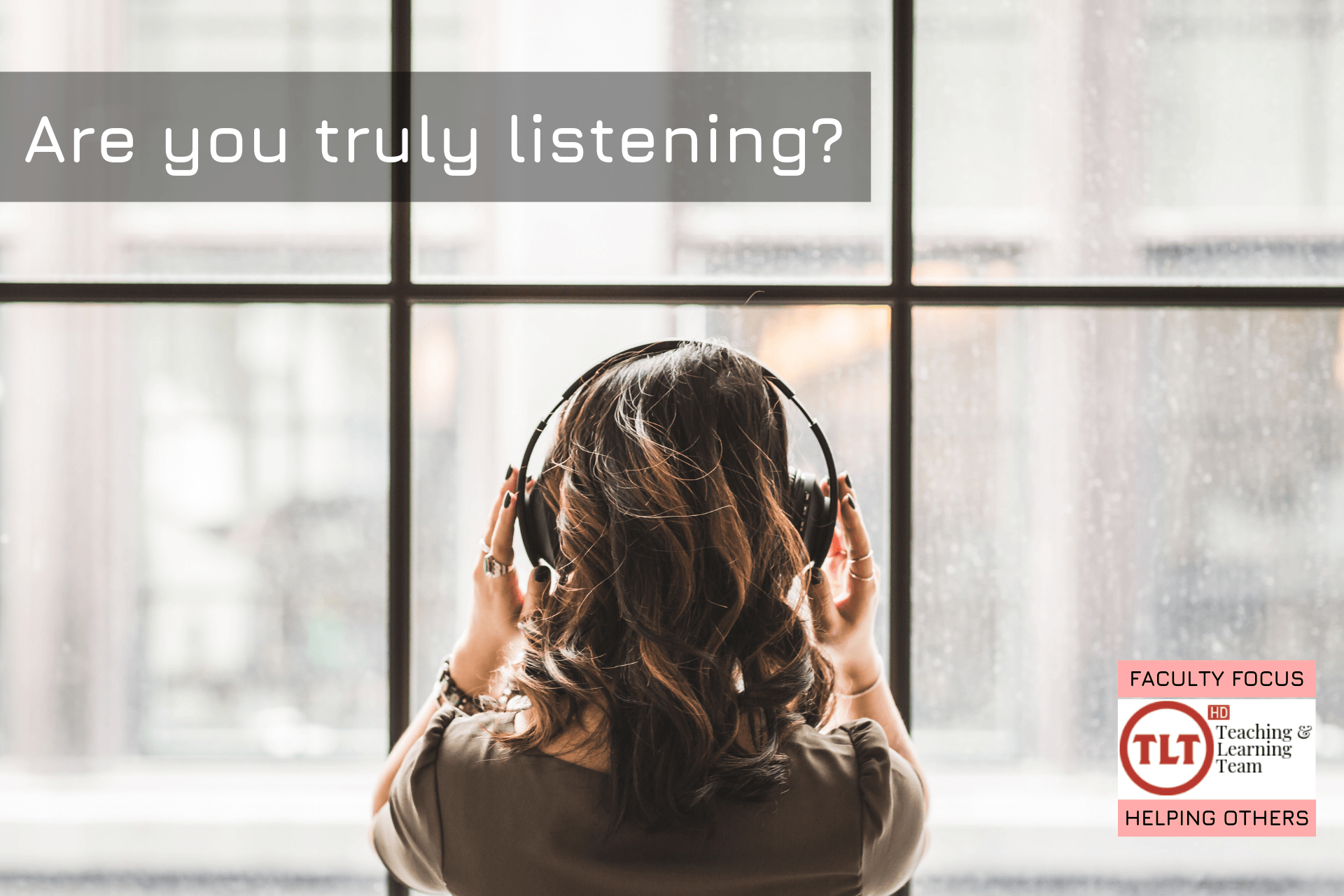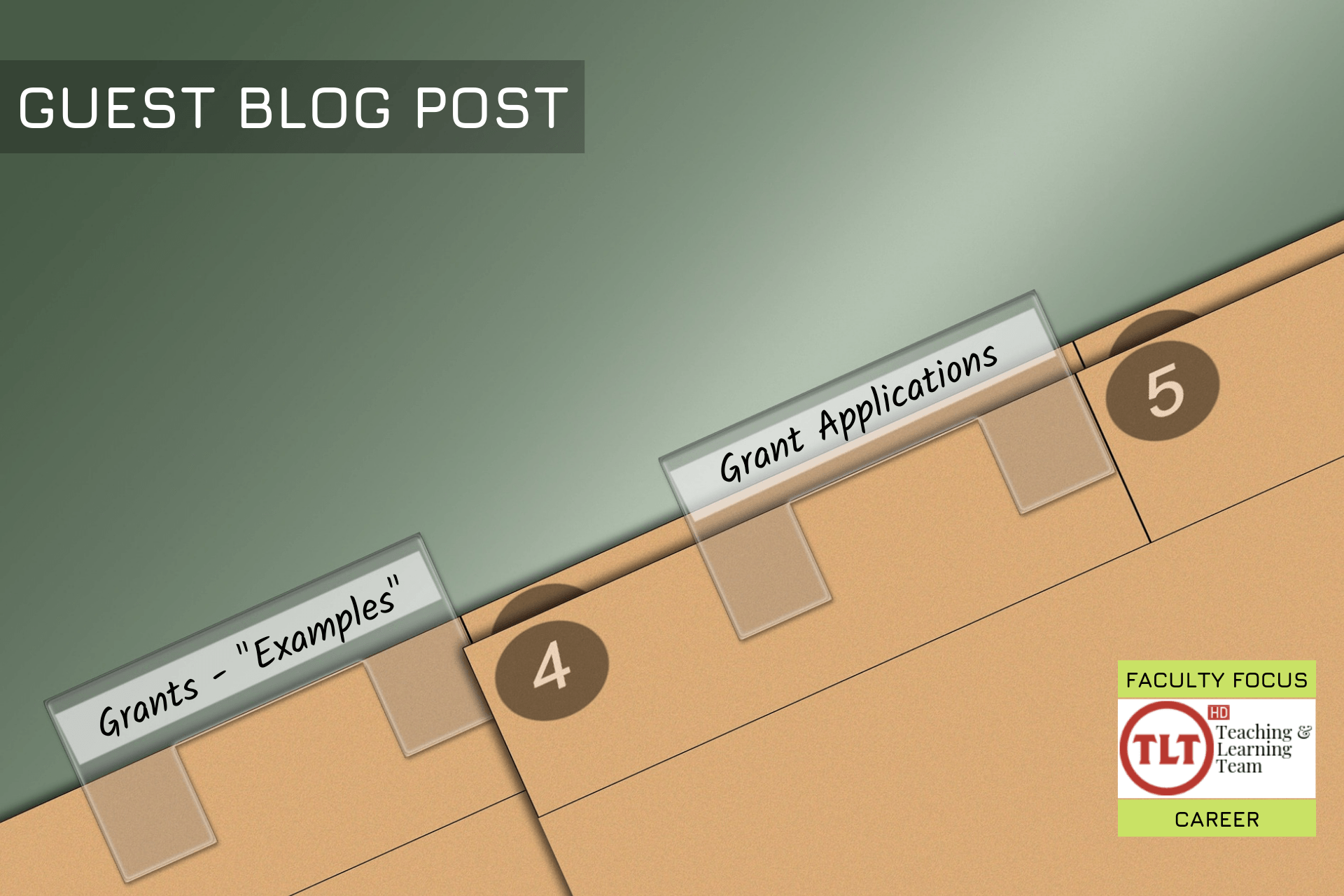We may not want to admit it, but most of us are terrible listeners. We’re distracted, mentally overburdened, and typically fail to practice perspective-taking. Too often, we interact with people on auto-pilot, without giving them much thought. In the busy worlds we live in, it can certainly be challenging to devote our attention to someone and eliminate distractions such as our to-do lists, electronic devices, and our own thoughts and feelings.
Being an ineffective listener can have detrimental effects on our relationships with students, colleagues, and our loved ones. But when we listen “mindfully,” we can be aware of these barriers and still remain open and attentive to the speaker’s message. Here are a few tips to practice more mindful listening:
Be present
When we listen mindfully, our focus is on the present moment, which means attending to the person with whom we are conversing. This requires us to remove as many distractions as possible and commit to actively engaging in the conversation.
- Workplaces and our homes are full of distractions. If you’re able, make your environment as quiet and distraction-free as possible (yes, that means silencing your devices and putting them away!).
- If you anticipate the conversation will be important or difficult, take a moment to clear your mind before you meet with someone. Practice a few relaxation techniques, such as deep breathing and muscle relaxation, before the conversation.
Cultivate empathy
We each see the world through the lens of our own experiences, values, and opinions. Sometimes this can get in the way of mindfully listening because we, consciously or not, push our own perspectives onto the speaker. But when listening mindfully and empathically, our goal is to understand the other person’s point of view and accept it for what it is, even if we disagree with it. For example, if the speaker expresses frustration, try to consider why he or she feels that way, regardless of whether you think that feeling is justified or whether you would feel that way yourself were you in his or her position. To better connect with and understand the person, try to remember a situation that inspired similar feelings for you and consider how you would like someone to react to your concerns.
When we disagree or are unable to genuinely empathize during a conversation, it’s important to avoid interrupting with counter-arguments or mentally preparing a rebuttal while the other person is speaking. And when you share your own perspective, express yourself using “I” statements to make it clear that your comments reflect your own thoughts and feelings rather than universal truths.
Paraphrase
Once the other person has finished expressing a thought, paraphrase or mirror back what he or she said to make sure you understand and to show that you are paying attention. Helpful ways to paraphrase include: “What I hear you saying is…” “It sounds like…” and “If I understand you correctly…” This gives the speaker the opportunity to correct you if you’ve misunderstood them. But be careful to avoid parroting, which can sound phony. You don’t need to paraphrase everything; use your judgment to identify times during the conversation when providing a succinct synopsis would help you better understand the speaker and keep the conversation on track.
Ask open questions
An open-ended question is one that cannot be answered with a simple “yes” or “no.” They require more than one-word responses and, thus, encourage a fuller articulation of thought. Examples of open questions include: “What was that like?” “What did you learn from that experience?” and “How did that shape your opinion?” Open questions encourage the speaker to think differently or more deeply about the subject and provide you with more information to help you better understand them. They also indicate to the speaker that you are interested in what they have to say (remember: expressing interest does not require you to agree with them).
Be present in your silence
Most of us have our responses playing in our heads before the other person has finished expressing what they want to say. Having a response brewing while the other person is talking is not being present or truly listening. To encourage you to focus on the speaker, practice paraphrasing and asking open-ended questions as discussed above.
Use engaged body language
Show that you are engaged and interested by making eye contact, nodding, facing the person, and maintaining an open and relaxed body posture. Avoid attending to distractions in your environment, such as checking your phone, and be mindful of your facial expressions (they often reveal how we’re truly feeling).
Avoid giving advice unless it’s requested
Problem-solving is likely to be more effective after both conversation partners understand one another’s perspectives and feel heard. So avoid jumping in right away with advice to “fix” the issue. Offering unsolicited advice is often counterproductive and diminishes connectedness.
Mindfully observe what happens
This is one of the more challenging skills to practice, but it is worth the effort. When we are truly being mindful, we are able to observe, without judgement, how we are feeling while remaining attentive to the speaker. Try the following and use your observations to inform your behavior during future conversations:
- Notice when you choose to listen and when you become distracted.
- Notice what it’s like to give a person your undivided attention without advising, correcting, or fixing.
- Notice what happens when you interrupt and what happens when you don’t.
- Notice what happens when you let go of your agenda, and instead focus on being empathic.
- Notice how it feels to acknowledge your own reactions as they arise—thoughts, feelings, opinions, memories—then return your full attention to the speaker.
The next time a student approaches you after class, a colleague stops by your office, or a loved one gives you a call, challenge yourself to practice mindful listening. It’s not easy and it takes continuous practice. But perhaps by improving our own listening skills, we can inspire others to do the same. What would our communities be like if we were all truly listening?



